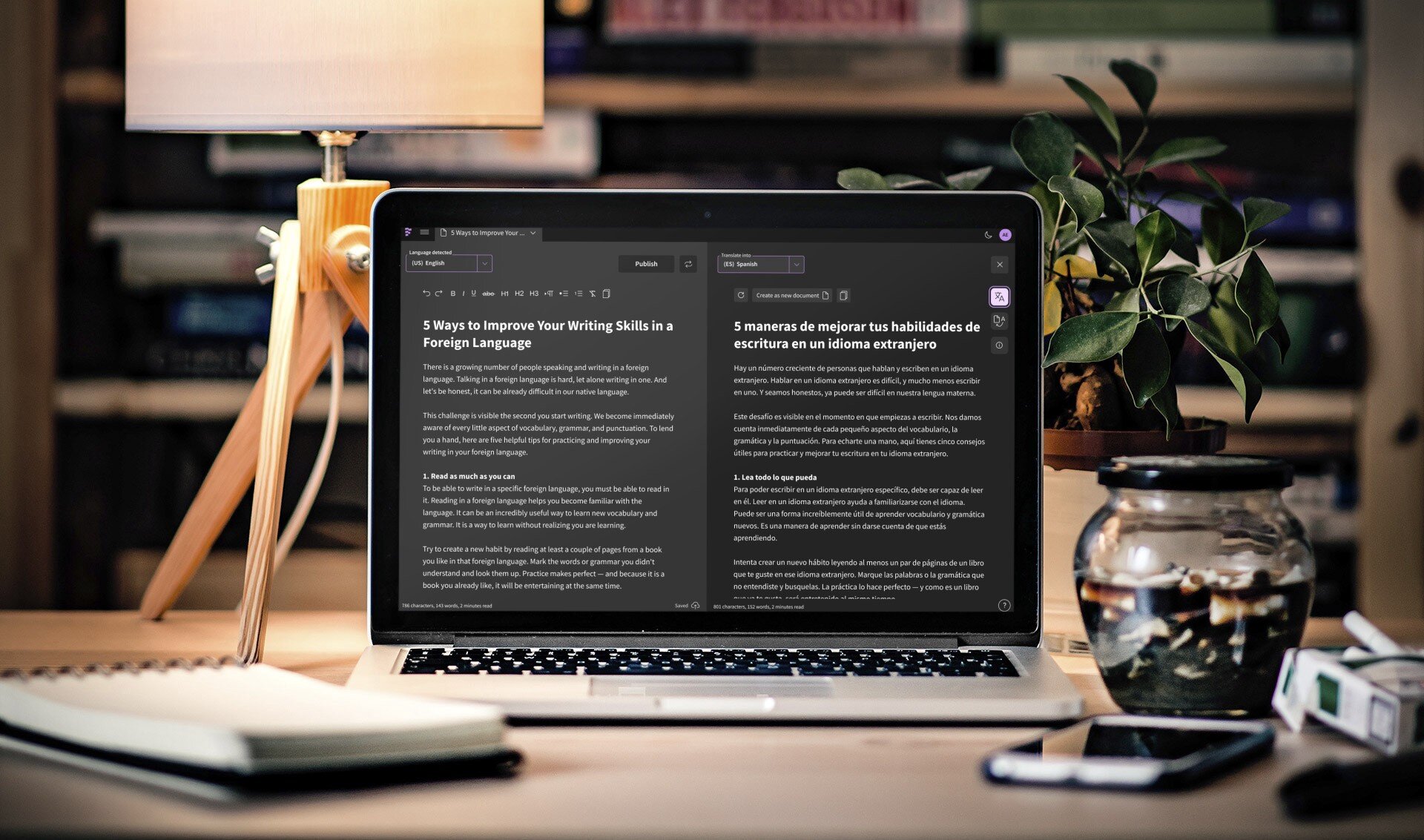How To Minimize The Effects of Foreign Language Anxiety in Your Writing
Fluently — An online document editor with a built-in translator.
Does writing in a foreign language make you feel anxious and insecure? Do you worry such tasks will eat up too much of your time? Will it be too complicated? Or maybe you procrastinate out of the fear of failing when your job involves writing in a foreign language?
One of the reasons we started designing Fluently was not only to break the language barrier but also to tackle anxieties like this.
What is foreign language anxiety?
Foreign language anxiety is a feeling of worry you get when you use a foreign or second language, whether in speaking, listening, or writing.
You perceive writing in a foreign language as a threat by reminding yourself that your ability to write/speak/understand is not perfect.
Then you start speculating what’s going to happen.
According to professor Elaine K. Horwitz from Texas University, who is an expert in second language learning, the perceived threats in this context are following:
Communication apprehension: you are afraid you won’t understand what others say, or you won’t make yourself understood using that foreign language.
Fear of negative evaluation: you are afraid of being judged if you don’t speak/write it well.
Test anxiety: you are afraid that because your ability to speak, write, or understand in that foreign language is not as good, you’ll get negative outcomes.
Of course, these fears make sense knowing we are social creatures:
If we don’t understand or make ourselves understood, we don’t feel connected to the other person or group.
If we are judged because of our poor communication ability in a foreign language, we feel excluded.
If we get negative outcomes because of our inability to communicate well in a foreign language, we risk getting excluded.
The commonality among these three threats is that the negative outcomes will happen in the future.
Thinking about the future is a blocker from entering a deep focus that can only happen if you are in the present.
Not being able to focus is blocking your creativity and the steady flow of words going from your brain onto that page.
How to tell if you have foreign language anxiety?
Elaine says that FLA (Foreign Language Anxiety) has the same symptoms as any other types of anxiety — sweating, palpitations, trembling, apprehension, worry, fear, threat, difficult concentration, forgetfulness, freezing, going blank, and avoidance behavior.
In the context of writing in a foreign language, you may experience:
Your mind is completely blank when you are about to write — anxiety is one of the causes of a writer’s block, the worry of not being good enough. Many people have faced this block of staring at a blank page and being stuck for a long time. If you add the worry of being judged because of grammar or spelling mistakes, it is easy to understand why it might hurt your creativity.
You overthink what you have written — constantly checking and worrying if what you have written sounds good or if there are still mistakes in your text.
You can’t sit and write for a longer period — you may say to yourself, “I’m going to write,” but you quickly drain all your willpower to the point where your primal brain takes control, and you start getting easily distracted or doing other things.
How to minimize the effects of foreign language anxiety in your writing
Acknowledge that you have FLA — go through the list of symptoms. If you check one of them and it is specific to writing in a foreign language, embrace it. You can’t solve a problem if you don’t acknowledge it.
Try to switch your mindset — accept that you will make mistakes and that it is normal. Nobody cares as much as you think to judge and mock you. Everyone’s got their own things to worry about. And if you get judged, they will forget about it faster than you think. Realize that you will only get better at writing in your foreign language if you keep practicing.
Image by: @visualizevalue
Change your writing process — writing and editing are two different things and should be done at a different time. When you write, you have to focus on letting your brain pour ideas onto the page. Don’t obsess on checking that the sentences are eloquent or mistake-free. Editing is the time for that.
Use tools made to improve your writing in a foreign language — when it’s time for writing, use tools that help you focus on just writing. When it’s time for editing, use tools that help you improve what you have written.
Here are some examples:
LanguageTool: enabling you to check if your spelling and grammar are on point. Unlike Grammarly, which is only for English writing, LanguageTool supports more than 20 languages.
Hemingway App: enabling you to make your writing clearer.
WordReference: enabling you to find definitions, synonyms, conjugations, translations, and more.
Google Translate: enabling you to translate short pieces of text into a foreign language quickly. It can help to quicken the process of writing in a foreign language.
Reverse Dictionary: enabling you to search for words by their definition.
While all these tools are great to write better and with more confidence in a foreign language and help reduce foreign language anxiety in your writing, there’s also a downside.
Switching between these tools is not only hurting your creative flow but also makes you waste your time.
There are learning curves. There are distractions. Ads. Different UI. No wonder you end up losing focus, and as a result, you are less productive. Not to mention that the writing process is not very satisfying.
How Fluently will help minimize the effects of foreign language anxiety in your writing
That’s why we’re building Fluently.
To enable you to write in a foreign language, with focus and the best multilingual tools combined.
Fluently is combining:
A minimalistic document editor: enabling you to focus (no ads, no moving elements, no persuasion tricks)
Highly accurate translations: enabling you to use the best translation services available in the market.
Multilingual grammar & synonym checker: enabling you to improve your written and translated content into multiple different languages.
In the Fluently app, the combination of these multilingual tools blends in together smoothly, providing you the ultimate writing experience.
Curious about Fluently? Go to → www.fluently.so.




